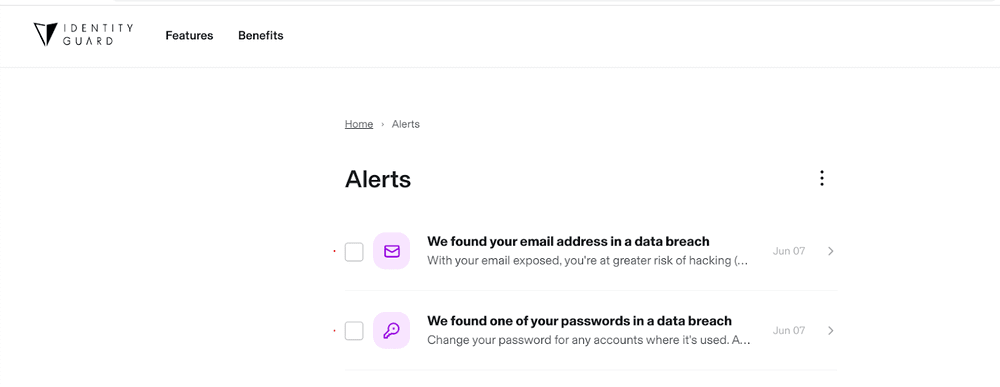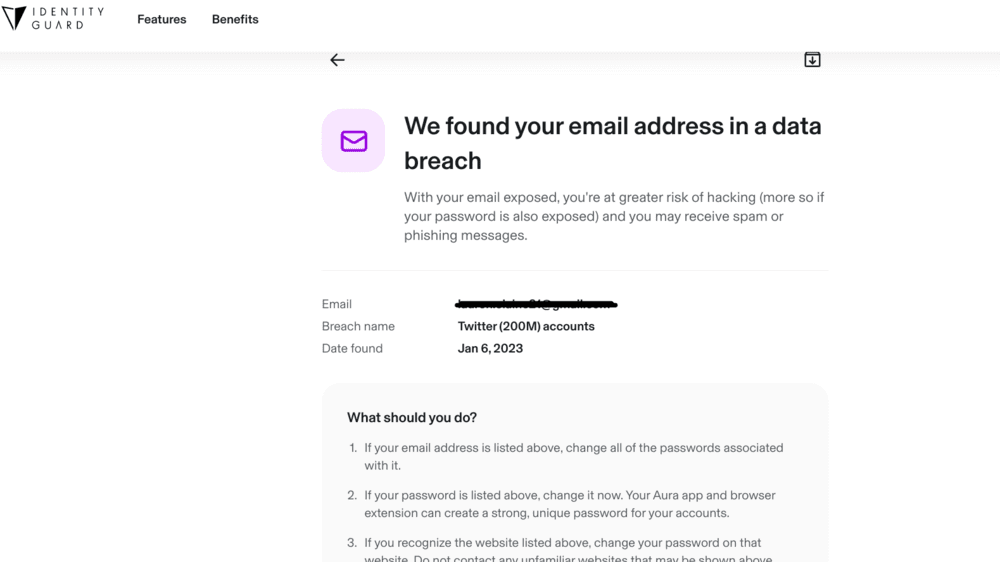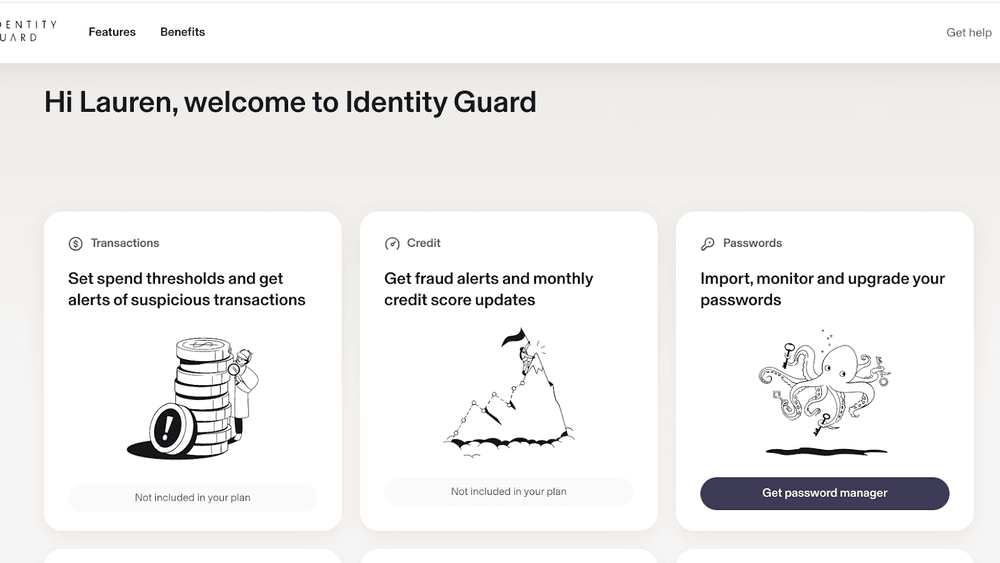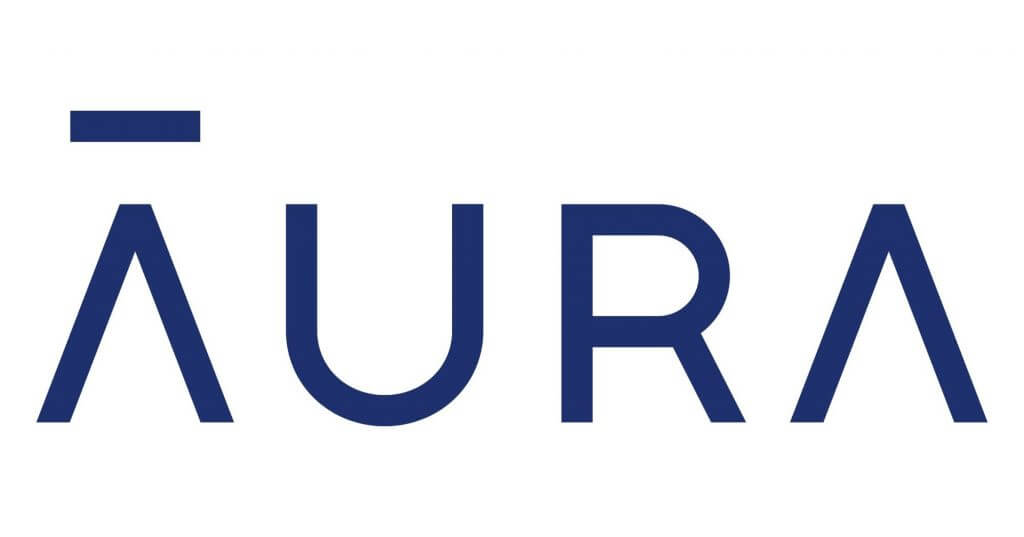Identity Guard vs Zander Identity Theft Protection 2024
The Identity Guard vs. Zander Identity Theft Protection match-up is an interesting one. Both services offer low-cost options that might be worth considering if you’re on a tight budget.
But after putting them through test after test, I drew one significant conclusion – I’d rather pay slightly more for the peace of mind a truly comprehensive service brings. And that’s why I recommend Aura instead.
Luckily, for our readers, you can get our exclusive OFF offer TODAY..

You Should Get Aura If…
- You want monitoring that looks at everything from your Social Security number to your auto title.
- You want 24/7/365 access to an incredible customer service team that’s experienced in threat resolution and identity restoration.
- You want a full suite of online security tools that give you privacy online, including a VPN, antivirus software, email alias creator, password manager, and ad-blocker.
- You have kids or teens at home and want to protect them with extensive safety tools offering everything from screen time to safe gaming controls.


- You want to save a bit with their low-tier Value plan, and you don’t mind the sacrifices that come with it.
- You want accurate alerts with a user interface that makes more sense than Zander.
- You have more than two adults in your family to cover and need Identity Guard’s flexible family plans that allow for up to five adults.
- Cost matters to you above all else, and you’re okay with bare-bones monitoring services.
- You have time and energy to monitor your credit yourself.
- You want identity restoration services included, even with your low-price plan.
Home Security Heroes independently tests and reviews every product. We may earn a commission when you buy through our links. Read more here.
Aura is another identity theft protection service that offers a much more extensive list of monitoring services, 24/7/365 access to an expert threat resolution team, and a full suite of digital security features. Plus, given what they offer, Aura’s price is incredibly low (especially when you use our discount code).
That said, if you’re interested in Identity Guard or Zander, I don’t blame you. Their very attractive base-level prices make them worth considering. In this review, I give you my honest take on what these services can and can’t do, so you can pick the protection service that’s right for you.
Identity Guard vs. Zander Identity Theft Protection: Head-to-Head Comparison
Putting Zander and Identity Guard head-to-head was different than comparing other services. While both offer multiple plan tiers, one of their biggest selling features is their low-priced offerings.
It’s hard to find identity protection for less money than these two services can provide. So, while I’m usually looking at a service’s top-level plan, examining all the bells and whistles, if you will, with this comparison, I took the opposite approach.
Since most people are going with Identity Guard or Zander because they’re looking for a budget-friendly identity protection service, I’m going to focus heavily on what’s included with their respective lowest-tier plans.
At higher price points, these services look pretty lackluster. While I’ll touch on what you can get when you pay more, know that if you have a slightly higher budget, neither Zander nor Identity Guard should be where you focus.
With that in mind, let’s dig in – starting with one of the most important aspects of any identity protection service: its monitoring capabilities.
Editor’s Ranking Table
 |  |  | |
Overall Score | |||
Monitoring & Alerts |
|
|
|
Threat Resolution |
|
|
|
Theft Insurance Per Adult |
|
|
|
Customer Support |
|
|
|
Additional Services |
|
| Only Available on Elite plan
|
Cost |
|
|
|
Renewal Price Increased After 1st Year? |
|
|
|
Promo Code |
Monitoring & Alerts: Winner — Identity Guard
When I’m testing identity protection services, the first thing I do is look at their monitoring capabilities. I want to know what the service claims it’s keeping tabs on. Then, I look at how well it monitors those areas.
At their lowest levels, Zander and Identity Guard both offer dark web monitoring and data breach updates. Identity Guard also includes high-risk transaction monitoring, which Zander fails to offer at all. And Zander includes change of address monitoring, which Identity Guard charges more for.
As you start to move up the tiers, you’ll find much more comprehensive monitoring from Identity Guard. At their top level, they offer:
With Zander, the top plan options add new account monitoring and account takeover monitoring – that’s it.
So, neither of these services offers truly comprehensive monitoring with their low-priced plans. You can get comprehensive monitoring through Identity Guard if you opt for a higher-priced plan option. With Zander, even the willingness to pay more doesn’t get you full monitoring services.
Dark Web Monitoring
Now that we know how extensive their monitoring is, let’s look at accuracy. The number of dark web alerts a service finds on me provides a great indication of how well it catches threats overall.
In the case of Identity Guard and Zander, I’m happy to say they both found two dark web alerts on me.
This is exactly what I expected Identity Guard to do because it’s what Aura found on me as well. And Identity Guard and Aura rely on the same bones, so to speak.
But Zander’s accuracy surprised me. I didn’t expect it to find as many alerts as it did. Few other services match Aura and Identity Guard in this area. So, for such a low-cost option to manage, it was impressive!
Alerts Dashboard
Zander’s accuracy is a stand-out positive, but its monitoring features have a significant flaw – the alerts dashboard makes alerts challenging to act on.
See, Zander doesn’t separate dark web alerts from everything else. Instead, Zander gives you a personal information report that includes all sorts of “critical alerts” that aren’t actually critical.

For example, among the two real dark web alerts were five “critical” alias alerts linked to my phone number. The unknown aliases the service picked up were the five other members of my family’s phone plan. Something like that certainly doesn’t deserve a critical designation the way a dark web alert does.
More than that, Zander’s alerts give little information. Many of them are missing key things, like the name of the website that a compromised password is linked to.

Identity Guard’s alert dashboard is far better.

Each alert shows up with basic but usable information. When you click on them, you get further details (like the site that was breached), so you can actually do something to protect yourself.

Financial and Credit Monitoring
With low-level plans, you don’t get any credit monitoring from Identity Guard or Zander. And, they don’t offer much in the way of financial monitoring either. Identity Guard monitors high-risk transactions with its “Value” plan, but that’s it.
If you’re willing to pay a bit more, Identity Guard’s financial and credit monitoring capabilities become incredibly thorough. Zander’s do not.
Though both offer in-portal Experian credit lock tools with higher-tier options, only Identity Guard includes:
What stands out to me here is the investment account monitoring.
Here’s why – You can monitor your credit yourself (or sign up for another free credit monitoring service). And while you can certainly watch your 401(k) or other investment accounts, too, signs of fraud are easy to miss. When you know you’re not going to touch your retirement account for several years or even decades, it’s all too easy to ignore it.
401 (k) and investment account monitoring is a feature that’s hard to find. Only the top identity protection services like Aura and Identity Guard offer it. But if you have retirement savings to consider, it’s worth having.
Public Records Monitoring
As with credit and financial monitoring services, neither Identity Guard nor Zander offers much in the way of public records monitoring with their value plans.
While Zander will reimburse you if you become a victim of home title theft, they don’t monitor for signs of it upfront. So, you might not know you’re a victim until you try to sell your home or take out a second mortgage.
While Zander’s Ultra plan still fails to include public records monitoring, Identity Guard’s top-tier plan offers an exhaustive list of public record monitoring services. Not only do they monitor your home title, but they also include criminal records and sex offender registry monitoring, ensuring criminals aren’t committing crimes in your name.
The only service I’ve tested that offers more than this is Aura. It includes home and auto title monitoring, which is ideal since your vehicle is also probably one of your most expensive assets.
Threat Resolution: Winner — Zander
 |  |  | |
Expertise |
|
|
|
US Based Support? |
|
|
|
Customer Hours |
|
|
|
Concierge Resolution |
|
|
|
Lost Wallet Protection |
|
|
|
Identity Guard and Zander are both excellent at resolving threats and restoring your identity if needed. But Zander comes out ahead in this category for several reasons.
Let’s take a look at each of them.
Customer Service
I’ve called Zander and Identity Guard’s customer service teams multiple times at this point, and I’ve yet to be disappointed. Both have connected me to a friendly and helpful representative in under two minutes.
But Zander beats Identity Guard in this category by offering 24/7/365 customer service. In contrast, Identity Guard has generous but limited hours.

Concierge Restoration
Here again, Zander comes out ahead.
Both services offer full-service identity restoration, meaning they’ll file paperwork for you, arrange calls with your bank, help you contact credit bureaus, and essentially do all the annoying, time-consuming tasks that come with fixing identity theft.
However, Identity Guard only offers concierge restoration services with its top-tier plan. Zander includes it with its low-priced value plan, making it a stand-out, budget-friendly option.
Wallet Protection
If you lose your wallet or realize it’s been stolen, you’ll want Identity Guard’s services.
Zander’s wallet protection is standard – they’ll help you cancel and replace your bank cards and anything else in your wallet (except cash).
But Identity Guard takes things up a notch by also offering to wire you up to $2,000 in emergency funds from one of your accounts. If you lose your wallet on vacation while, say, traveling in a foreign country, that emergency fund access could be a huge advantage.
Theft Insurance: Winner — Tie
 |  |  | |
Theft Insurance Score | |||
Theft Insurance |
|
|
|
Identity Guard and Zander’s theft insurance benefits are very similar. Both offer $1 million in identity theft insurance coverage per adult.
This is rare.
Many identity protection services offer $1 million per plan. So, if you have a couple’s or family plan, the coverage remains the same. The extra coverage that both Zander and Identity Guard offer is a big plus.
That said, both Zander and Identity Guard impose some limits on their coverage.
Zander, for example, only covers legal fees up to $125 per hour. And Identity Guard places the following limits on certain expenses:
- Lost Wages: $2,000 per week, for five weeks maximum
- Travel Expenses: $1,000 per policy period
- Elder Care, Spousal Care, and Child Care:$2,000 per policy period
But overall, their policies are about the same, and neither one is bad.
Family Plans: Winner — Identity Guard
If you have a family to protect, Identity Guard is the better choice.
With Identity Guard, you get flexibility. Their plans allow you to include up to five adults and unlimited dependents. That means you can protect your kids through college and beyond. Or, you can include your parents, in-laws, and anyone else you need to.
As a side note, Aura does this too – and provides a full suite of parental control tools, including safe gaming. Safe gaming monitors player interactions on over 200 internet games for signs of cyberbullying, harassment, and grooming. So, it’s a great feature for parents of kids and teens.
But I digress.
Zander includes family plans for up to two adults and ten dependents under 18. So, the option to protect your family exists, but there’s nothing special about it.
Ease of Use: Winner — Identity Guard
Zander and Identity Guard are both usable, but where Zander’s interface feels outdated and a little clunky, Identity Guard feels modern and seamless.

Meanwhile, Identity Guard’s navigation is intuitive. There aren’t extra pages for no reason. But, I do wish they didn’t put services not included with your plan front and center. If you sign up for the value plan, Identity Guard still places things like credit monitoring which isn’t included, in the top navigational row.

So, while Identity Guard is better than Zander in this category, it’s still not my favorite service. Though, I suppose if I were using the top-tier plan, the layout wouldn’t be a problem.
Additional Services: Winner — Zander
 |  |  | |
Additional Services |
|
| Only Available on Elite plan
|
While neither Zander nor Identity Guard offers the range of added services some top-tier identity protection companies do, Zander does include a VPN and antivirus software with its Ultra plan.
Identity Guard only offers a password manager and a safe browser. Notably, Identity Guard includes these with all three levels of its plans, but Zander’s VPN and antivirus software is still more impressive.
Costs: Winner — Zander
Promo Code | |||
Individual Plan Cost |
|
|
|
Couple Plan Cost |
Covers 2 Adults |
|
|
Family Plan Cost |
Covers 5 adults & unlimited kids |
Covers 5 adults & unlimited kids |
|
Renewal Price Increased After 1st Year? |
|
|
|
Promo Code |
It’s hard to beat Zander when it comes to pricing. They offer their Essentials plan for under $7 per month for individuals.
Identity Guard charges closer to $9 per month for its lowest-level, Value plan – but they do run promotions pretty regularly, which lower that price by up to 40% when you opt to pay annually.
But the reason Zander wins this category isn’t for pricing alone – it’s because of overall value.
Zander’s lowest-level plan includes identity restoration, while Identity Guard’s does not. Since no service can completely protect you from identity theft, having restoration services included is a must. So, even if Zander’s Essentials plan costs higher than Identity Guard’s promotional price, Zander is the better value at that level.
If your budget is bigger, Identity Guard starts to look better, though. They include a lot more at higher tiers – which is why the ultimate winner in this matchup is…
Final Verdict: Winner — Identity Guard

Identity Guard wins this competition for a few reasons:
But Zander wasn’t far behind, and in some ways, it stood out. Including identity restoration services at such a low cost is a big bonus.
But the truth is, I wouldn’t pick either of these services to protect my identity. For me and my family, Aura is the best choice, and it’s what I’d recommend to you as well.
Aura offers everything Identity Guard’s top-tier plan includes and then some. It comes with award-winning identity theft and credit monitoring, tons of added security features, and 24/7/365 threat resolution services.
And it does all of this at a price that’s far lower than Identity Guard. When you use our discount code, you can lock in a rate for Aura that’s remarkably affordable.
So, Identity Guard may beat Zander in this comparison, but neither is the best pick. If you want to protect yourself and those you love, you want Aura.
Other Comparison Articles:


